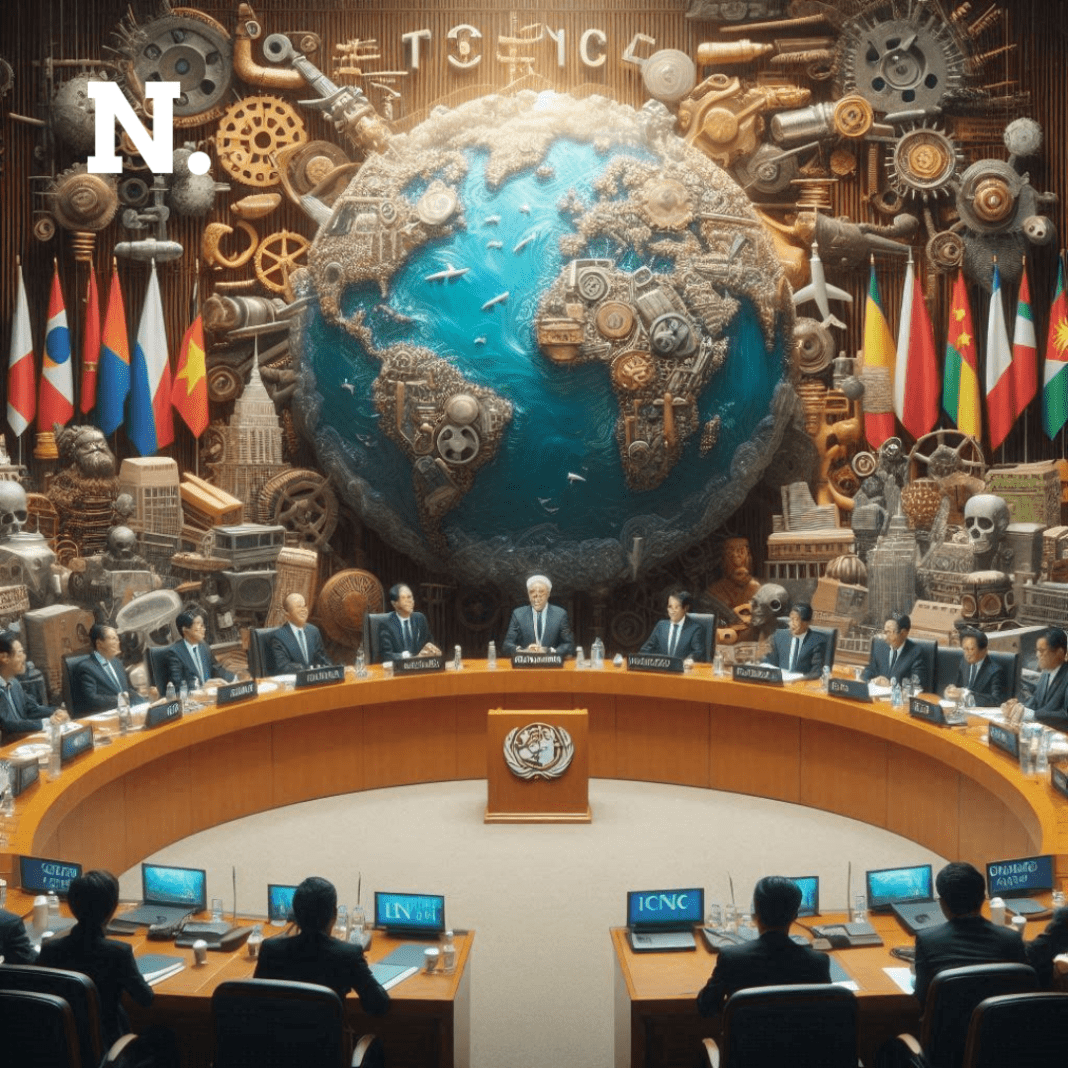Asia-Pacific countries have a critical role in ensuring the upcoming treaty addresses not just waste management but also the core issue of plastic production. The Fourth Meeting of the Intergovernmental Negotiating Committee (INC-4) to develop a legally binding international instrument on plastic pollution concluded on April 29. The first INC was held in Uruguay in November 2022, and there is not much longer to wait for a worldwide plastics convention.
Early Stages of Negotiation In Plastic Management
INC-2 in Paris and INC-3 in Nairobi last year focused on discussing procedural rules rather than substantial negotiations on the actual text of the future multilateral instrument. The text’s Revised Zero Draft had been distributed for discussion before to INC-4 in Ottawa. The goal is to enact a treaty by mid-next year through a Ministerial Meeting, potentially hosted by Senegal, Peru, Ecuador, or Rwanda.
Active Participation in Curbing Plastic Waste
In addition to United Nations member states, observers including scientists, youth activists, and civil society organizations have been actively participating in the process. The International Alliance of Waste Pickers, the Indigenous Peoples Group, and others have voiced their concerns through plenary intervention statements, advocacy to member state delegations, and public campaigns. For instance, the Scientists’ Coalition for an Effective Plastics Treaty submitted interventions during the plenary, emphasizing the need for independent science and reiterating the call to reduce plastic production.
Industry Lobbyists’ Influence
Upon reviewing the UNEP list of INC-4 attendees, the Center for International Environmental Law discovered that 196 lobbyists from the chemical and fossil fuel sectors had signed up to attend. This figure was seven times higher than the delegates of the Indigenous Peoples Caucus and the Scientists’ Coalition for An Effective Plastic Treaty. Additionally, there was a 37 percent increase in industry lobbyists compared to INC-3, held six months earlier.
Challenges in curbing Plastic Waste
During INC-4, Arpita Bhagat from GAIA Asia Pacific highlighted industry-controlled and largely unregulated Extended Producer Responsibility. She also discussed plastic credits promoted by entities like the World Bank, Verra, and the Plastic Credits Exchange. Bhagat pointed out that investigative reports had exposed plastic credits as a greenwashing scheme. This scheme exacerbates the plastic problem by burning plastic in cement kilns. The industry’s market-based solutions and greenwashing tactics have had a particularly negative impact on Southeast and South Asia.
Spoiler Countries and Slowed Negotiations
Industry efforts to influence government delegations were evident during the INC-4 process. Spoiler nations impeded initial discussions through several contact groups and subgroups. The Break Free From Plastic movement noted that a small group of polymer-and-plastics-producing countries, including Saudi Arabia, India, Kuwait, and Qatar, attempted to reduce the scope of the proposed treaty to waste management issues only, not addressing plastic production.
The Bridge to Busan Declaration
Peru and Rwanda proposed intersessional work, meaning sessions before INC-5 in Busan, South Korea, in November 2024. This work aimed to gain agreement on important issues, particularly focusing on primary plastic polymers (PPP) or virgin plastics. The plan sought to comply with UNEA Resolution 5/14. It aimed to reduce global PPP production to 40% of 2025 levels by 2040. On the final day of talks, several nations introduced the Bridge to Busan Declaration on Plastic Polymers. This declaration aimed to garner support for preserving the treaty’s PPP-related clause. It also sought to create anticipation for the fifth round of talks in Busan.
Support from the Philippines and Other Nations
The Philippines, along with Fiji and Malawi, unequivocally supported the Rwanda-Peru resolution during the plenary on April 28. The Philippines also signed the Bridge to Busan Declaration. If the Philippines is serious about showing leadership in the plastics treaty negotiations, it can join the High Ambition Coalition. This group of nations is dedicated to creating a comprehensive, cyclical, and ambitious worldwide legally enforceable instrument. The instrument guarantees prompt action and successful interventions across the whole lifespan of plastics.
Compromises and Continued Ambiguity
Although the Bridge to Busan Declaration was a powerful statement of commitment to combating plastic pollution, compromises were made with countries like the United States and United Kingdom. These countries eventually supported intersessional work but remained ambiguous on the issue of PPP. They did not affix their signature to the Bridge to Busan Declaration along with other industrialized nations.
The Need for a Comprehensive Global Treaty
A comprehensive global treaty addressing chemicals of concern, particularly primary plastic polymers, is crucial to stopping plastic pollution. This treaty would target pollution at its source—the extraction stage. Such a deal would lessen the spread of chemicals worldwide. It would reduce the harmful effects of plastics on the environment. The treaty would also mitigate negative impacts on human health. It aims to safeguard vulnerable populations, particularly those in the Global South.
Conclusion
The world is watching as the process for a global plastics treaty unfolds. Citizens, particularly those in impacted communities, are hopeful for a treaty that addresses the harms caused by plastics throughout their entire lifecycle. The road to Busan represents an opportunity to create meaningful change and ensure a plastic-free future for generations to come.





